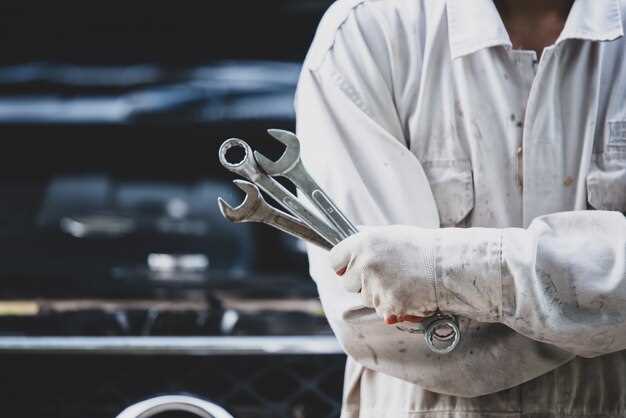
What is preventative auto maintenance?

Preventative auto maintenance is essential for vehicle longevity and performance. By adhering to a regular maintenance plan, car owners can significantly reduce the risk of unexpected breakdowns and costly repairs. This proactive approach ensures that various components of the vehicle operate efficiently and safely, ultimately enhancing the driving experience.
The benefits of a well-structured maintenance plan extend beyond mere functionality. Regular check-ups can lead to improved fuel efficiency and lower emissions, contributing not only to the owner’s savings but also to environmental sustainability. Additionally, investing time and resources in preventative care can help maintain the vehicle’s resale value, making it a smart decision for any car owner.
Understanding the specifics of what a comprehensive preventative auto maintenance plan entails empowers car owners to make informed decisions. From routine oil changes and tire rotations to brake inspections and fluid checks, each component plays a crucial role in overall vehicle health. By prioritizing these tasks, drivers can ensure that their vehicles remain reliable and safe on the road.
Identifying Key Benefits of Regular Maintenance for Vehicle Longevity

Regular maintenance is essential for extending the lifespan of any vehicle. By establishing a proactive plan and adhering to a consistent schedule, vehicle owners can significantly improve performance and reliability. One of the most important benefits is the reduction in the likelihood of unexpected breakdowns. Regular inspections and timely servicing address minor issues before they escalate into major problems, thus saving both time and money.
Another crucial advantage is enhanced safety. Routine checks on brakes, tires, and steering ensure that the vehicle operates safely on the road. This proactive approach minimizes the risk of accidents, providing peace of mind for both the driver and passengers.
Moreover, regular maintenance supports better fuel efficiency. A well-maintained engine, aligned wheels, and properly inflated tires contribute to optimal fuel consumption. This not only benefits the owner financially but also has a positive impact on the environment by reducing carbon emissions.
Additionally, maintaining a regular schedule can help in retaining the vehicle’s value. Prospective buyers place a premium on vehicles with documented maintenance history, making it more rewarding for owners when they decide to sell or trade in their vehicle. Proper maintenance records can elevate the resale value considerably.
Lastly, a structured maintenance plan fosters a deeper understanding of your vehicle’s needs. By maintaining a schedule of services, owners become more aware of their vehicle’s condition, allowing them to make informed decisions regarding repairs or upgrades. This knowledge ultimately leads to a more enjoyable driving experience and prolonged vehicle use.
Creating a Customized Maintenance Schedule Based on Driving Habits
To maximize the longevity and performance of your vehicle, developing a customized maintenance plan tailored to your driving habits is essential. An effective maintenance schedule considers various factors, including driving frequency, trip length, and driving conditions.
First, assess your driving patterns. For individuals who primarily engage in short, frequent trips, it’s crucial to recognize that engines often don’t reach optimal operating temperatures, leading to increased wear. In such cases, you should schedule regular oil changes and fluid checks more frequently than the standard recommendations in your owner’s manual.
For those who drive longer distances, an adjustment in the maintenance plan may be necessary. Long highway drives usually allow vehicles to perform efficiently, but they still require routine inspections. Ensure to include checks on brake systems, tire conditions, and fluid levels at regular intervals to prevent any potential issues.
Additionally, environmental factors play a significant role in shaping your maintenance strategy. Vehicles operating in extreme temperatures, whether hot or cold, require more frequent monitoring. For instance, hotter climates may necessitate more frequent coolant checks, while colder areas require regular inspections of battery health and antifreeze levels.
Adapting your maintenance schedule not only promotes vehicle reliability but also aids in preventing costly repairs down the line. By aligning your plan with how and where you drive, you can ensure that your vehicle remains in optimal condition throughout its life.
Implementing a Comprehensive Maintenance Plan: Tools and Resources

Creating an effective maintenance schedule is essential for ensuring the longevity and performance of your vehicle. A well-structured maintenance plan relies on specific tools and resources that facilitate regular check-ups and upkeep. Below are key components that should be included in your maintenance strategy.
- Maintenance Checklist:
A thorough checklist helps track what’s due and when. Common items to include are oil changes, tire rotations, brake inspections, and fluid level checks.
- Automotive Maintenance Software:
Utilizing specialized software can streamline the process. Look for programs that allow you to:
- Set reminders for upcoming services.
- Log completed maintenance tasks.
- Store service history for better tracking.
- Owner’s Manual:
Your vehicle’s owner manual is a critical resource. It provides the manufacturer’s recommended maintenance schedule, including suggested intervals for specific tasks.
- Online Resources:
Websites and forums can offer valuable insights from fellow vehicle owners. Online platforms provide tips, troubleshooting advice, and best practices for maintaining various car models.
- Professional Assistance:
Joining a reputable auto shop can enhance your maintenance plan. Establish a relationship with a mechanic who understands your vehicle’s needs and can perform regular inspections.
By combining these tools and resources, you can effectively implement a comprehensive maintenance schedule that helps prevent unexpected repairs and extends the life of your vehicle.